Student Success Initiative
Closing the opportunity gap at CSU by Joe Giordano published Feb. 23It’s been over a decade since the announcement of the Student Success Initiative — a bold challenge that charted an ongoing commitment to raising graduation rates at Colorado State University.
In the past 14 years, the Student Success Initiative has boosted six-year graduation rates above the 70% mark, a daunting challenge back in 2007. With the progress of the Student Success Initiative, CSU set its sights on creating equitable educational environments inside and outside of the classroom as a way to bolster graduation rates.
In 2017, the second phase of the Student Success Initiative was born. The university made key hires and innovative moves with the goal of eliminating opportunity gaps for first-generation students, students of color and students from limited-income backgrounds.
Ryan Barone, assistant vice president for student success, was one of those key hires. His role bridges the worlds of student affairs and academics under the leadership of Kelly Long, vice provost for undergraduate affairs, and Blanche Hughes, vice president for student affairs.
“We know students don’t live compartmentalized lives,” Barone said. “What they’re learning inside the classroom can be supported by what they’re learning outside the classroom. The inverse is true as well.”
According to Barone, the university has made progress in filling the opportunity gap — the space between the university’s graduation desires for all students and actual outcomes, with an explicit focus on institutionally underserved students.
But leadership is not satisfied, Barone said. That won’t happen until CSU can see the absolute elimination of all opportunity gaps.
“The very spirit of our land-grant mission compels us ethically and morally to respond with as much vigor and resources as possible,” Barone said. “This is culture change. And when we do this well, the culture will change permanently.”
Two key hires
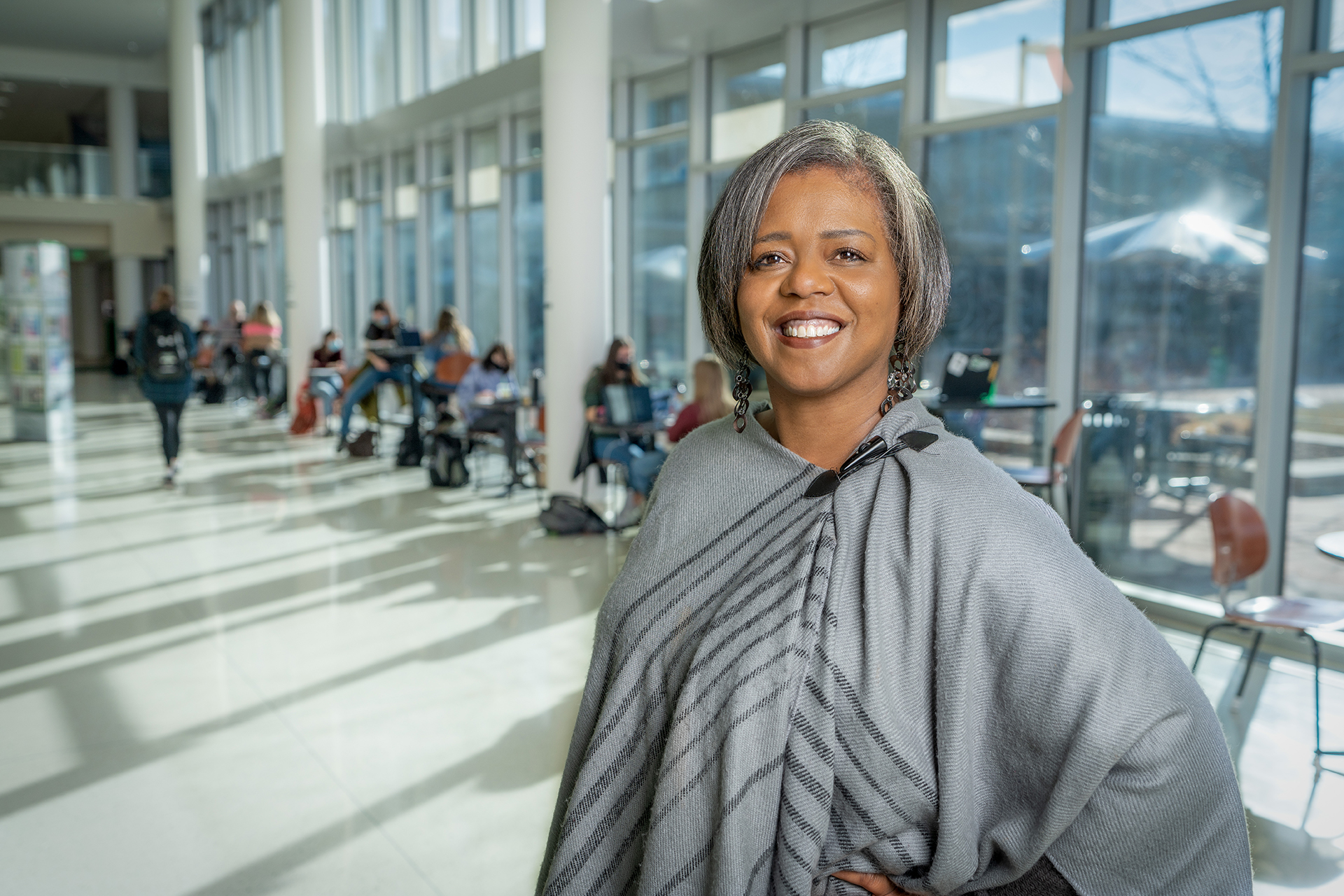
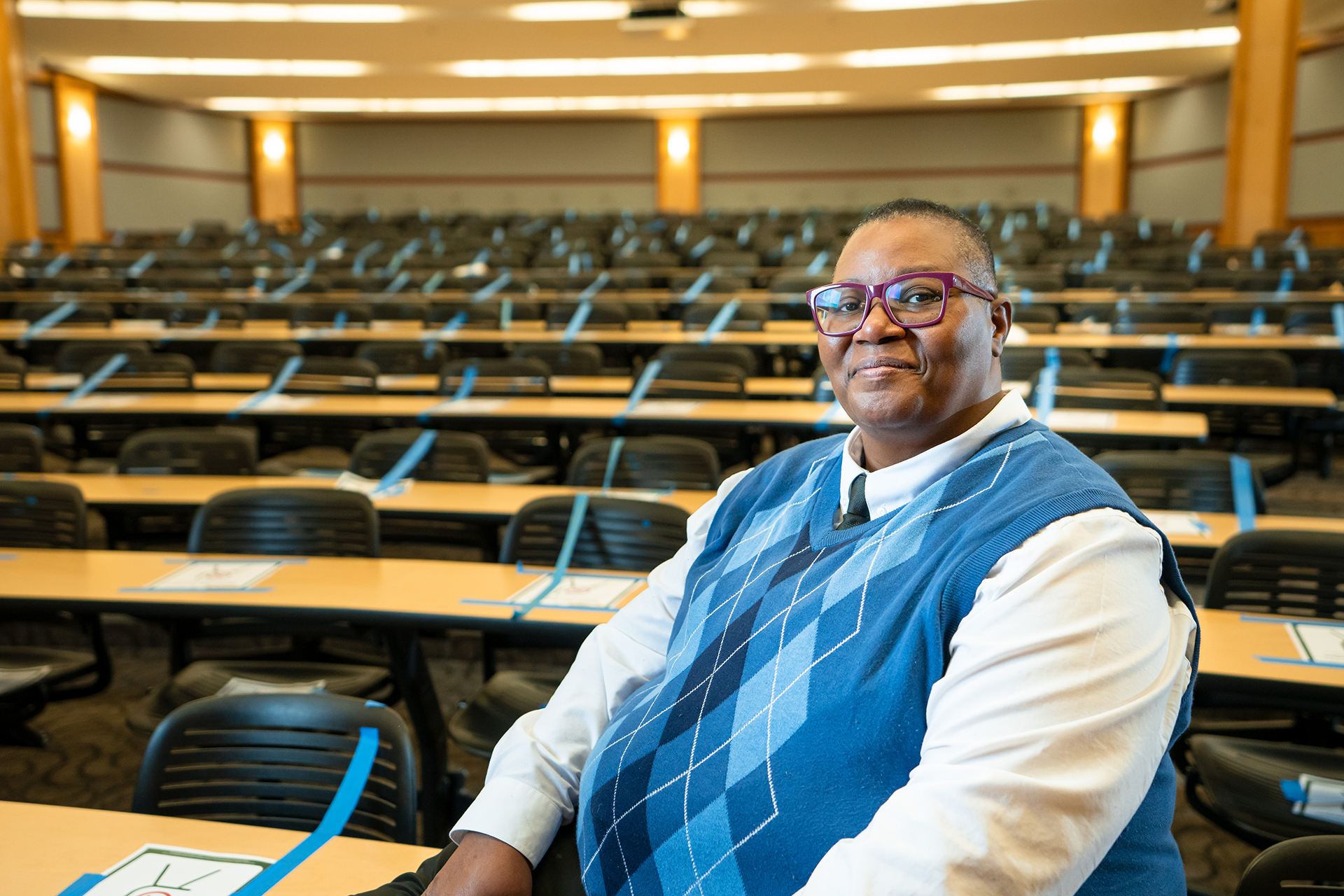
Bridgette Johnson (left) and Fleurette (Flo) King have new roles at CSU, providing programming and guidance to support faculty as part of the Student Success Initiative. Photos by Joe A. Mendoza/CSU Photography
In recent months, CSU has made two key moves to help with culture change.
Bridgette Johnson, the longtime director of the Black/African American Cultural Center, and Fleurette (Flo) King, a higher education equity and inclusion expert, have new roles to support the Student Success Initiative.
Johnson and King, drawing on their expertise in diversity, equity, inclusion and social justice, are providing programming and guidance to support faculty, Long explained.
“We have recognized that unless we work closely with our faculty to prepare them, to provide professional development opportunities and to help them revise curriculum where appropriate, we are not going to be able to meet our student success goals,” Long said.

“We have recognized that unless we work closely with our faculty to prepare them, to provide professional development opportunities and to help them revise curriculum where appropriate, we are not going to be able to meet our student success goals.”
— Kelly Long, Vice Provost for Undergraduate Affairs
As managing director of diversity, equity, inclusion and student success, Johnson is working across the institution with colleges and academic departments to identify graduation and opportunity gaps. As the equity educator, King is focused on the faculty level, providing training, resources and consultation on diversity, equity, inclusion and social justice.
Hughes explained the new roles continue to build upon the innovative partnership between academic affairs and student affairs.
“I’m very excited about these positions as they are a critical step in supporting student success for racially minoritized students and build upon the strong partnership between academic affairs and student affairs,” she said.
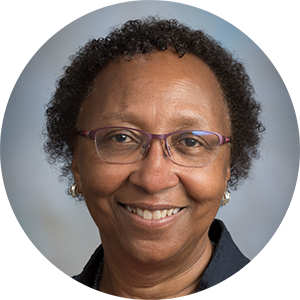
“I’m very excited about these positions as they are a critical step in supporting student success for racially minoritized students and build upon the strong partnership between academic affairs and student affairs.”
— Blanche Hughes, Vice President for Student Affairs
Barone added that Johnson and King bring unique and complementary skillsets to the positions to build rapport with faculty and staff. Housed within the Student Success Initiative structure, Barone said those roles have the potential to make broad connections across campus to weave together a comprehensive equity strategy.
“They have an exceptional ability to peel back the layers of data and get to the humanity of the student success work that we try to do and recognize that we all have shared goals,” Barone said.
Working across the university
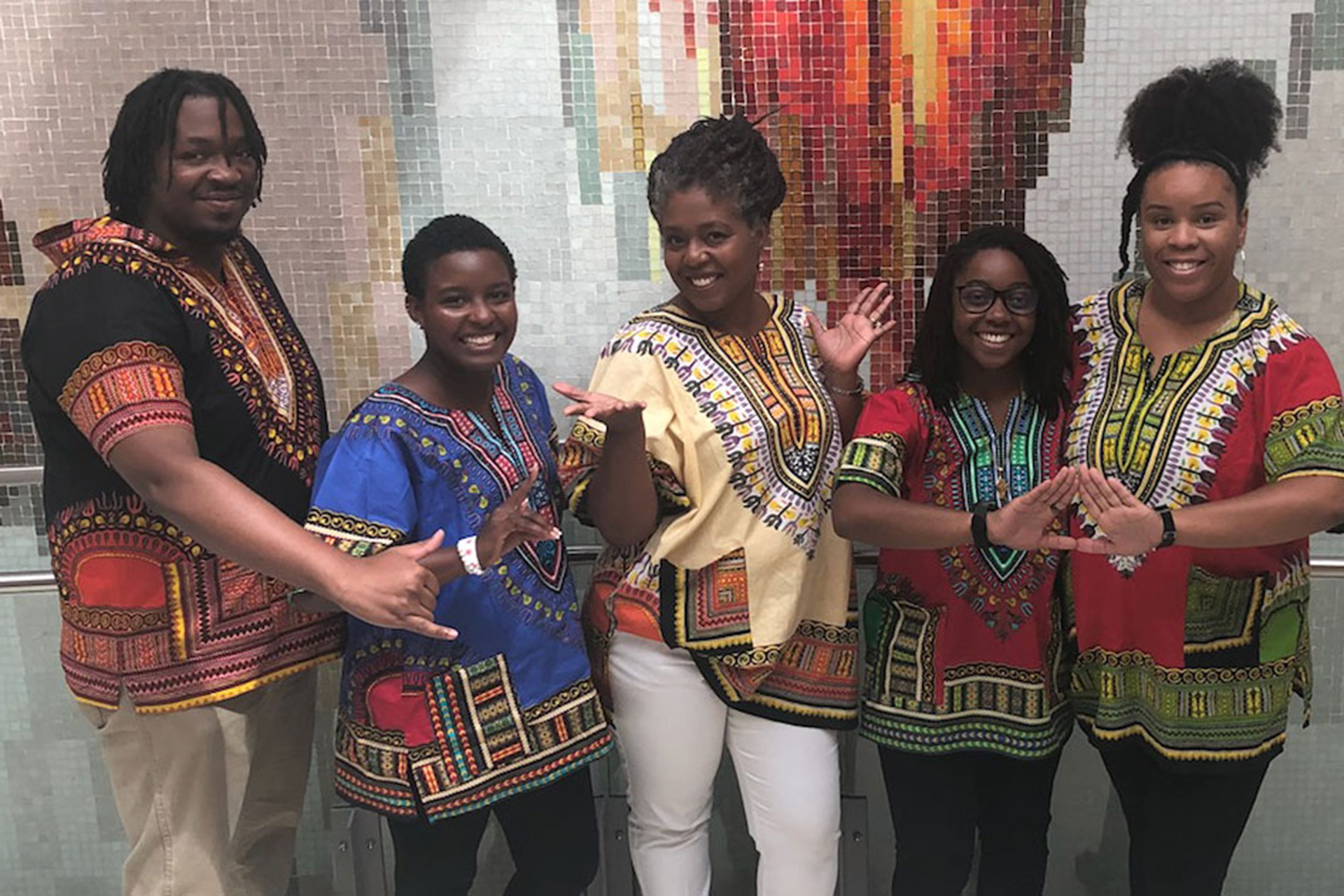
Johnson (center) with staff and students of the Black/African American Cultural Center.
As director of B/AACC, Johnson gained years of experience developing programs to help students prepare for their academic journey at CSU. “How can we mirror that sense of belonging in the academic colleges?” she said.
Johnson’s new role answers that question.
She is collaborating across the university to develop institutionalized programming and policies and procedures to increase the graduation and persistence rates among racially minoritized students.
Johnson is meeting with the deans and has been working with Institutional Research, Planning, and Effectiveness to parse the opportunity gap data and break gaps down by college to make it more manageable and actionable.
“Our goal is to increase persistence and graduation rates,” she said. “When we’re able to review IR data with academic colleges and discuss collaborative opportunities by the colleges and even by the academic departments, the efforts become more tangible.”
This could mean increasing recruitment or increasing retention and graduation, Johnson said. She explained that the colleges, equipped with data, can then work strategically to see what they are currently doing and identify gaps and create new programs/initiatives and review policies that may be hindering student success.
Right now, Johnson is working with five colleges housing the STEM disciplines, adding that she has been working with external companies to provide networking and internship opportunities for students of color.
“It’s important to raise graduation rates of all students,” she said, “and of racially minoritized students who have continually been put at the margins. Systemically, opportunities aren’t as accessible to racially minoritized students, and we have an opportunity to change this.”
Educating faculty and instructors
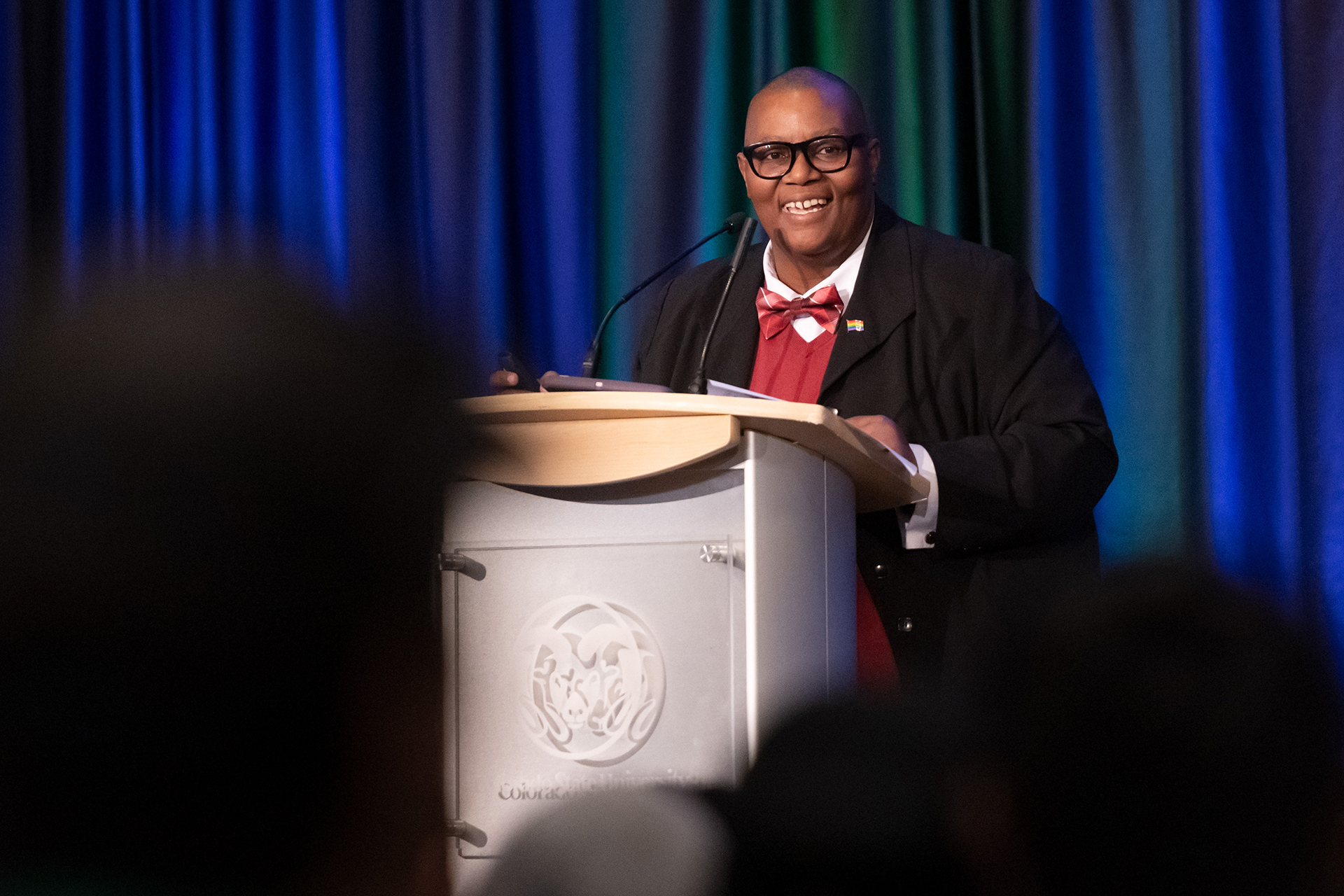
King delivers the keynote address for the 2019 Martin Luther King Jr. Day march and celebration at CSU. Photo by John Eisele/CSU Photography
King’s new role provides support, professional development and consultation for inclusive pedagogy and classroom management for faculty, instructors and teaching assistants.
“It’s connected to student success in the classroom and helping faculty and instructors feel more confident and competent with teaching a diverse (group of students in the) classroom — and also providing those students with knowledge in diversity, equity, inclusion and justice tools and insight in their academic field,” said King, who started in a permanent role in December.
King is working with Ria Vigil, assistant vice president for diversity, and Laxmi Shastry, coordinator for student-facing relations, to develop and evaluate the current diversity, equity, inclusion and social justice professional development opportunities and identify potential gaps.
In addition, King is serving as an internal consultant to TILT, where inclusive teaching is part of the Teaching Effectiveness Initiative training for new faculty members and graduate teaching assistants. She also is working to enhance TILT’s institutional competencies around diversity, equity, inclusion and social justice by serving on the DEIJ Leadership team and the Inclusive Excellence committee.
King also will continue to facilitate the Intergroup Relations Institute, a multi-day experience that provides tools and strategies for inclusive teaching. King added that they are planning for a virtual session in May. She also will be providing workshops focusing on inclusive teaching, with tailored sessions on anti-racism, trans-inclusive pedagogy and other topics.
“The immediate goal is to help faculty and instructors create an inclusive classroom, use inclusive pedagogy to ensure they’re effectively teaching students regardless of their background, and also enhance a sense of belonging,” she said.
King explained two major strategies for closing the gap involve providing professional development for faculty and instructors and also addressing identities in academic majors.
“This is not only about creating a sense of belonging for students in marginalized groups — students of color, LGBTQ students, students with disabilities — this is also about helping all of our students to be competent in equity and inclusion in their (professional) field,” she said. “That’s really critical. Not only should they be able to work in a diverse workforce — they also should be able to identify and eradicate inequity and exclusion in their profession. I would love for this to become a signature skillset of CSU graduates.”